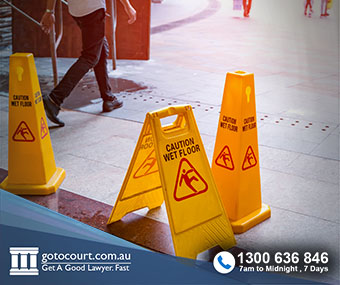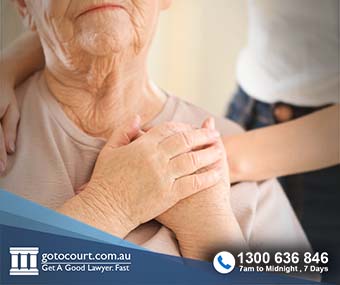Duty of Care in Aged Care (NSW)
Duty of Care in Aged Care (NSW)
When someone has a duty of care, they have a legal obligation to prevent others from coming to foreseeable harm. In the aged care industry in New South Wales, both the provider and the carers have a duty of care towards residents and individuals who use their facilities. Below is more information about the duty of care in aged care in New South Wales.
What is the duty of care in aged care?
The Aged Care Act 1997 regulates nursing homes in New South Wales. This Act sets minimum standards of care and establishes consequences for breaches of these standards. In New South Wales, the aged care sector provides assistance and services to older individuals with diminished capacity. Because of the inherent vulnerability of residents and patients within the aged care industry, providers have an especially high duty of care to protect them from harm.
At a legal minimum, an aged care provider must provide clean and safe spaces, employ capable staff, and offer quality clinical care.
An aged care worker might satisfy their duty of care with the following safeguards:
- Prompting a resident to take their medication;
- Treating wounds without delay;
- Encouraging a resident to eat and helping if required;
- Providing sufficient drinking water;
- Helping a resident to walk if they are at high risk of falling;
- Maintaining client progress records; or
- Addressing resident issues appropriately.
Significantly, workers in the aged care industry are expected to monitor the well-being of their residents and notify their superiors (and/or the resident’s family) if there are any issues that pose a danger to the resident.
Aged care client rights
Government-subsidised facilities in the aged care industry in New South Wales are subject to the Charter of Aged Care Rights.
Under this Charter, residents in aged care have 14 personal entitlements, specifically:
- Quality and safe care and services.
- Courteous and dignified care.
- Validation of their culture, diversity and identity.
- Freedom from abuse and neglect.
- Access to understandable information about their own care.
- Access to information about themselves and their entitlements.
- Autonomy over their finances, social and personal life, and personal risk.
- Decision-making capacity over personal aspects of their daily life.
- Independence.
- An opportunity to be heard and understood.
- A support person to speak on their behalf.
- Protection of their personal privacy and information.
- An opportunity to complain about grievances.
- Capacity to exercise their rights without ramifications.
Breach of duty of care in aged care
In New South Wales, the Civil Liability Act 2002 codifies a common law precedent that an aged care provider has a duty of care. Support workers, carers and managers at an aged care facility must ensure that their actions (and lack of action) minimise the risk of injury and harm to vulnerable residents and patients. As nursing homes have both a statutory and common law duty of care, when this duty of care is breached, it can give rise to a claim for negligence under tort law.
Standard of care
What is required by the duty of care varies based on each resident’s capacity and needs. For example, a care worker must ensure that a frail resident has greater supervision than a resident who needs minimal daily assistance. In the case of Chan v Barter T/A The Pembroke Nursing Home [2003], the court recognised that nursing home workers must display both skill and care in the discharge of their duties. The court found that the required standard of care was that which would be ordinarily expected of a reasonably competent nursing home worker.
Workers who do not work with the required skill and care are negligent and can be held accountable for this breach of duty. In the first instance, a complaint can be registered on My Aged Care. Additionally, a person who sustains a personal injury because of negligence can sue for damages under the provisions of the Civil Liability Act. In most cases, those who are harmed by a breach of duty will not pursue the aged care worker in court. However, the nursing home itself has a non-delegable duty to its residents, and the negligence of a worker can give rise to an action against the home itself.
Dignity of risk
An aged care provider or worker needs to balance their duty of care against their need to respect their clients’ own right to dignity of risk. An individual, no matter what age, has the right to make choices that improve their life. A vulnerable older person can choose to act in a way that brings them enrichment and enjoyment, even if it has the potential to pose a risk.
Please get in touch with the civil law team at Go To Court Lawyers for further information on the duty of care in aged care in New South Wales. Call 1300 636 846 for legal advice on any matter. We are here to help.

Affordable Lawyers
Our Go To Court Lawyers will assist you in all areas of law. We specialise in providing legal advice urgently – at the time when you need it most. If you need a lawyer right now, today, we can help you – no matter where you are in Australia.How It Works




1. You speak directly to a lawyer
When you call the Go To Court Legal Hotline, you will be connected directly to a lawyer, every time.

2. Get your legal situation assessed
We determine the best way forward in your legal matter, free of charge. If you want to go ahead and book a face-to-face appointment, we will connect you with a specialist in your local area.

3. We arrange everything as needed
If you want to go ahead and book a fact-to-face appointment, we will connect you with a specialist in your local area no matter where you are and even at very short notice.























